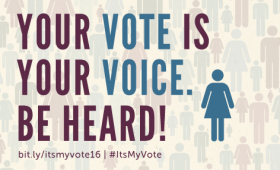The Effect of the House's Higher Education Bill
When President Lyndon B. Johnson signed the Higher Education Act (HEA) into law on November 8, 1965, he made a bold prediction:
Fifty years since the HEA's passage, Americans – especially women – are attaining more college degrees than ever before, and higher education has become a necessity in today's economy.
The House of Representatives is considering a proposal to overhaul the HEA in a way that makes college more expensive, more hostile, and ultimately further out of reach for many. H.R. 4508 would:
- Eliminate student loan forgiveness for public service employees and alter income-driven repayment options, increasing debt burdens for struggling borrowers
- Weaken schools' requirements to prevent and end campus sexual assault and support survivors
- Fail to strengthen the Pell grant program, which makes it possible for millions of low-income students to go to college, or even increase its annual grant amount to reflect inflation. Make no mistake, these provisions would particularly harm women's access to education. AAUW's own research shows student debt disproportionately impacts women, who face a gender pay gap throughout their careers and make up a majority of the public service workforce. Coupled with the reality of sexual violence on campus, this proposal would only further jeopardize women's educational opportunities and economic security over their lifetimes.
President Johnson sought to eliminate barriers to education through the HEA. Congress should do the same – not make it harder and costlier. Urge your Representative to oppose H.R. 4508.
Vote NO on the Proposed Constitutional Amendment
This Election Day, Pennsylvania voters will consider a constitutional amendment, "Allow Local Taxing Authorities to Exempt Full Value of Homestead Amendment," which would impact funding for public schools.
This ballot question would give the General Assembly the authority to allow school districts, counties or municipalities to exclude up to 100 percent of homestead property taxes. Currently, the maximum homestead property tax assessment exclusion sits at 50 percent. School funding accounts for the largest share of property tax bills, so this ballot measure would directly impact education funding in our state.

AAUW of Pennsylvania urges voters to vote NO on the proposed constitutional amendment in order to ensure responsible funding for all levels of education.
While a reduction in property taxes sounds wonderful for property owners, the reality for public schools is not so great. Local taxes are increasingly funding public schools because of continued decreases in state funding for them. Without homestead tax revenue, it's unclear where that money will come from. Current proposals include increases to income or sales taxes, which would disproportionally impact low- and fixed-income households. Passage of this ballot amendment would amount to a state takeover of local education with no promise of fair or increased funding for public education.
AAUW of Pennsylvania supports adequate and equitable funding for quality public education for all students. While our state's revenue and school funding plans certainly need reform, that reform should not come at the detriment of our public schools. Voting NO on the proposed constitutional amendment will ensure that this dangerous plan doesn't move any further.
Election Day is Tuesday, November 7— learn more about voting in Pennsylvania and make a plan to cast your ballot. When you do, AAUW-PA urges you to vote NO on the proposed constitutional amendment.
Request for Immediate Action -- Redistricting Reform
Commemorate Black Women's Equal Pay Day: Support HB 1243!
Public Policy Statewide Task Force Created
Open Primaries in our Future?
Paycheck Fairness Act


